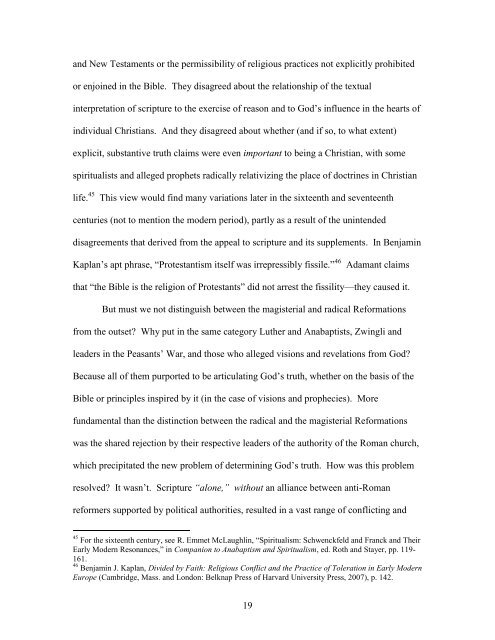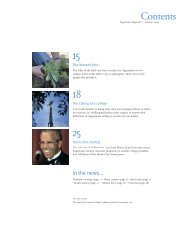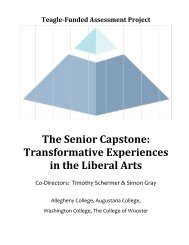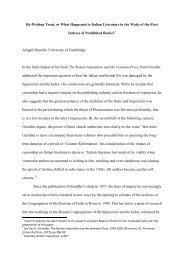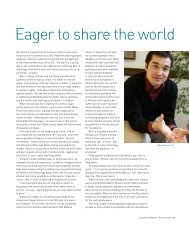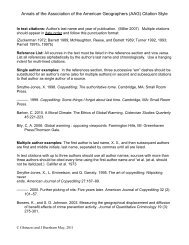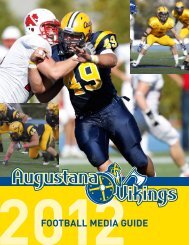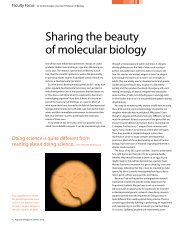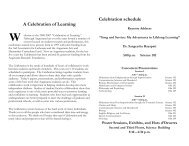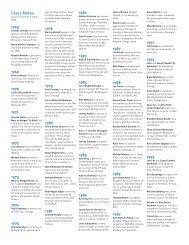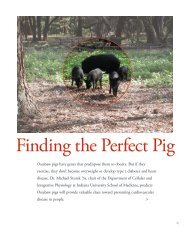Brad S. Gregory - Augustana College
Brad S. Gregory - Augustana College
Brad S. Gregory - Augustana College
Create successful ePaper yourself
Turn your PDF publications into a flip-book with our unique Google optimized e-Paper software.
and New Testaments or the permissibility of religious practices not explicitly prohibited<br />
or enjoined in the Bible. They disagreed about the relationship of the textual<br />
interpretation of scripture to the exercise of reason and to God‟s influence in the hearts of<br />
individual Christians. And they disagreed about whether (and if so, to what extent)<br />
explicit, substantive truth claims were even important to being a Christian, with some<br />
spiritualists and alleged prophets radically relativizing the place of doctrines in Christian<br />
life. 45 This view would find many variations later in the sixteenth and seventeenth<br />
centuries (not to mention the modern period), partly as a result of the unintended<br />
disagreements that derived from the appeal to scripture and its supplements. In Benjamin<br />
Kaplan‟s apt phrase, “Protestantism itself was irrepressibly fissile.” 46 Adamant claims<br />
that “the Bible is the religion of Protestants” did not arrest the fissility—they caused it.<br />
But must we not distinguish between the magisterial and radical Reformations<br />
from the outset? Why put in the same category Luther and Anabaptists, Zwingli and<br />
leaders in the Peasants‟ War, and those who alleged visions and revelations from God?<br />
Because all of them purported to be articulating God‟s truth, whether on the basis of the<br />
Bible or principles inspired by it (in the case of visions and prophecies). More<br />
fundamental than the distinction between the radical and the magisterial Reformations<br />
was the shared rejection by their respective leaders of the authority of the Roman church,<br />
which precipitated the new problem of determining God‟s truth. How was this problem<br />
resolved? It wasn‟t. Scripture “alone,” without an alliance between anti-Roman<br />
reformers supported by political authorities, resulted in a vast range of conflicting and<br />
45 For the sixteenth century, see R. Emmet McLaughlin, “Spiritualism: Schwenckfeld and Franck and Their<br />
Early Modern Resonances,” in Companion to Anabaptism and Spiritualism, ed. Roth and Stayer, pp. 119-<br />
161.<br />
46 Benjamin J. Kaplan, Divided by Faith: Religious Conflict and the Practice of Toleration in Early Modern<br />
Europe (Cambridge, Mass. and London: Belknap Press of Harvard University Press, 2007), p. 142.<br />
19


